Biggest-ever round of NHS strikes gets under way
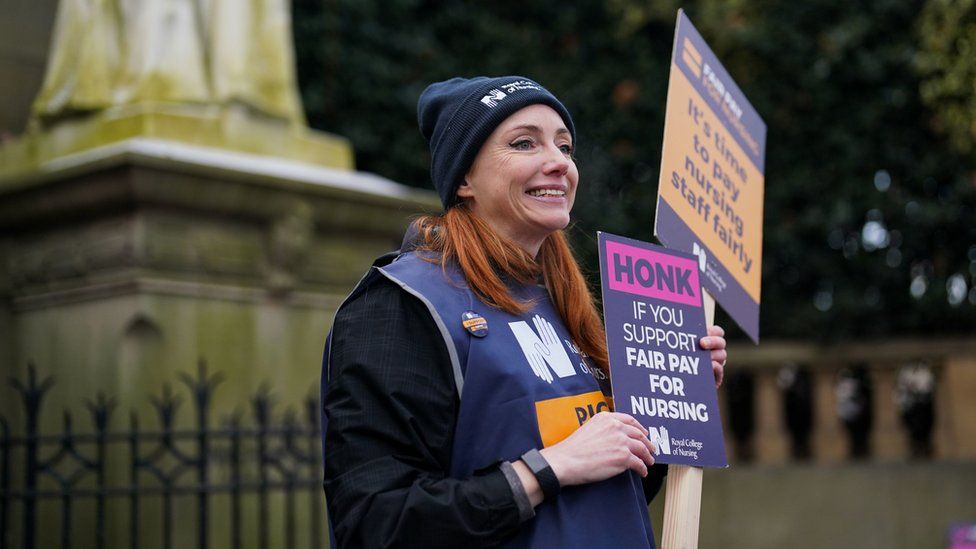
Nurses and ambulance staff will strike on Monday in parts of England as the biggest round of NHS walkouts starts.
Royal College of Nursing members in a third of England’s NHS trusts will go on strike, but action planned for Wales was suspended after a new pay offer.
They will be joined by members of two ambulance unions – the GMB and Unite – in some places as both sectors walk out on the same day for the first time.
Under trade union laws, emergency cover will be provided.
It marks the start of a series of walkouts by NHS staff in England this week – the biggest round of industrial action in the history of the health service, according to NHS bosses – in their fight to get an above-inflation pay rise.
It comes after a number of unions suspended strike action due to take place in Wales this week. Physios, midwives and nurses all announced on Friday they would not walk out.
Only Unite, which represents some ambulance staff, is going ahead with its planned action there on Monday.
- When are NHS staff striking and what pay do they want?
- Nurses call on Sunak to make new pay offer
The following strike action will take place this week:
- Tuesday – RCN members in a third of England’s services
- Thursday – Physios in a quarter of services in England
- Friday – Ambulance staff who are members of Unison in five of England’s 10 services
Ahead of the strike action, RCN general secretary Pat Cullen wrote to the prime minister urging him to table a new pay offer and bring the strike to a “swift close”.
She said taking industrial action was the last thing nurses wanted to do.
GMB national secretary Rachel Harrison said her members had been forced into Monday’s walkout as there had been no meaningful dialogue for a month.
“The NHS is crumbling, people are dying and this government is dithering,” she said.
The government says the pay demands are unaffordable and would fuel inflation.
Health Secretary Steve Barclay said ministers had met the recommendations of the independent NHS Pay Review Body.
And he warned the walkouts this weekly would “undoubtedly have an impact on patients and cause delays”.
The biggest strike – but what will the impact be?
Monday marks the first time ambulance crews and nurses will walk out on the same day after NHS industrial action started in December.
The NHS Providers – the membership body representing every NHS hospital and ambulance service – told BBC Radio 4’s Today Programme it expects to see significant disruption.
Chief executive Sir Julian Hartley said: “We do expect to have significant disruption in terms of planned care, outpatients and elective appointments, but obviously making sure that we deliver the priority of patient safety for urgent and emergency care…
“We can’t go on with a series of industrial actions that really take us away from focusing on those priorities because I can’t overstate the amount of work that goes on in organisations to manage and mitigate for industrial action, and our focus needs to be on delivering for patients as an NHS in those key areas.”
He said in total 90,000 appointments and admissions had been postponed since the beginning of industrial action.
But while it is the biggest strike action of this winter, the impact will not be felt everywhere.
Under trade union laws, emergency cover will be provided. This means services such as intensive care, kidney dialysis and urgent cancer care will be provided.
What is more, around a third of nurses are not members of the RCN and two thirds of services in England will not see any strike action take place.
The majority of services taking part in the two days of RCN action this week are hospitals.
It means the biggest impact will be seen in pre-booked treatment such as hernia repairs, hip replacements and outpatient clinics.
In the hospitals where strike action took place in January, the extent of the disruption varied greatly. Some said up to 20% of routine work had to be rescheduled, but others reported a much smaller impact.
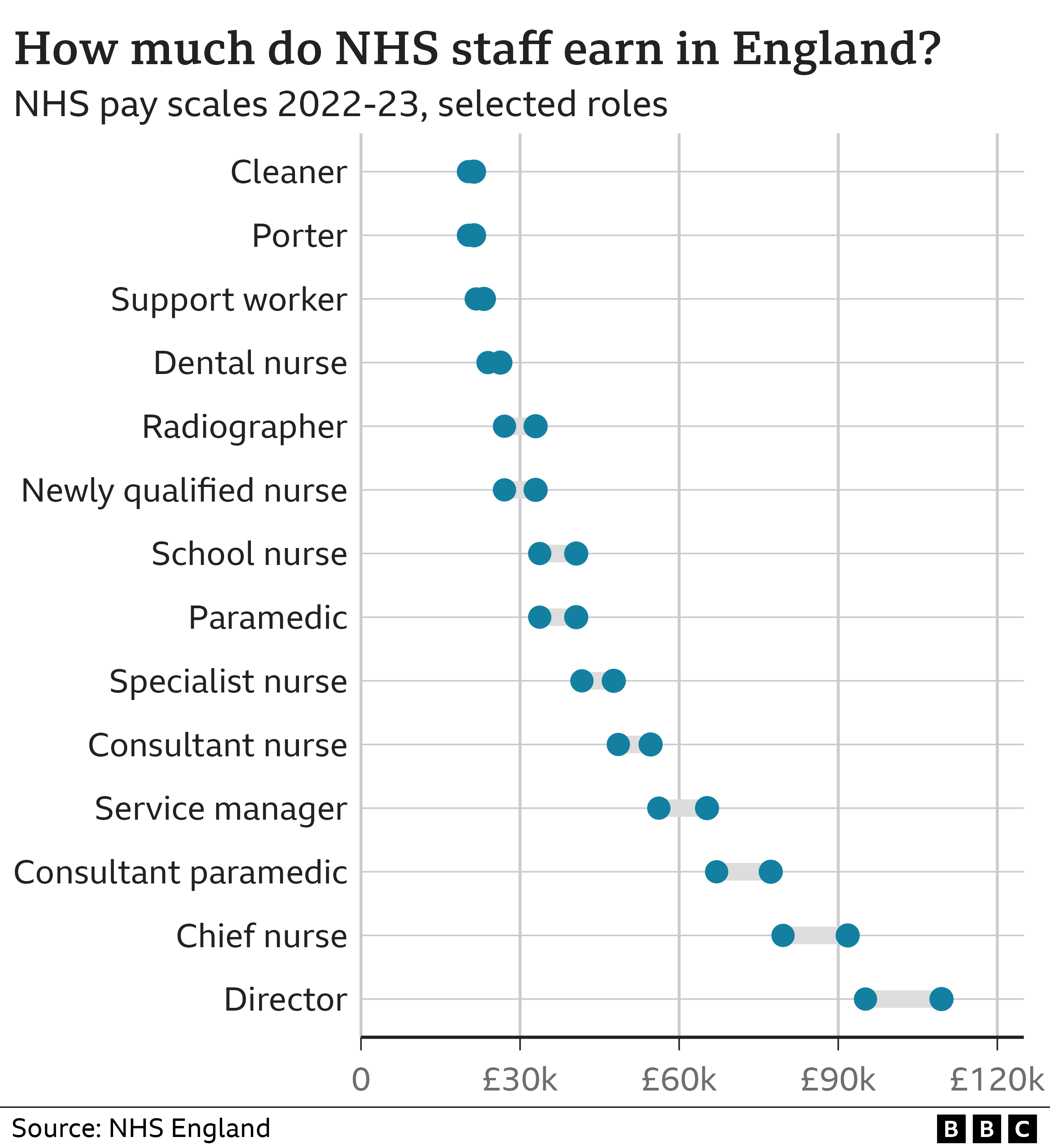
There is no strike action taking place in Northern Ireland this time, while talks have restarted in Scotland following a fresh pay offer.
Meanwhile, in the ambulance service Unison, which is by far the biggest union in the sector, is not taking action on Monday.
Between them, the GMB and Unite represent around a quarter of ambulance staff.
The services in London and the East of England will be completely unaffected.
What patients need to know
- The advice remains to call 999 in an emergency.
- The most life-threatening situations – such as cardiac arrest – will be responded to by an ambulance.
- Conditions which are serious but not immediately life-threatening might not be attended straight away in the areas where ambulance staff are on strike
- Other services, such as some cancer treatments or urgent testing, may only be partially staffed
- More routine care is likely to be badly affected, including planned operations such as knee and hip replacements, community nursing services and health visiting
- Anyone with an appointment not already rearranged should attend at their allotted time
- GPs, community pharmacies and dentists will be unaffected
What is the latest on talks?
The government has refused to reopen official pay talks – although it has met union leaders to discuss the situation.
The pay award, which is worth at least £1,400 for each NHS worker below the level of doctor and works out at an average of 4.75%, is already being paid to staff.
The government says it is now in the process of gathering evidence for next year’s pay award which is due to come in in April.
But the unions have pulled out of that pay process, which is overseen by the independent NHS Pay Review Body.
In Wales, staff were given the same award as in England, but the Welsh government has now offered another 3%, prompting many unions to suspend action there.
Pay talks are also taking place in Scotland as ministers there have offered extra too.
Unison head of health Sara Gorton said: “This ramps up the pressure on the prime minister significantly. Political leaders in Scotland and now Wales are making the Westminster government look decidedly out of touch.”
-
NHS: Who is striking, and what does it mean for patients?
-
2 days ago
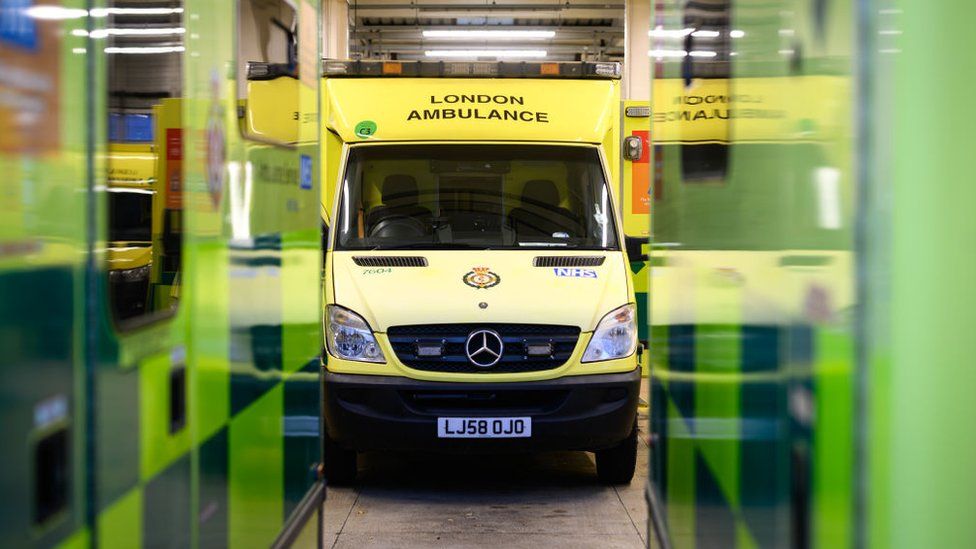
-
-
Pat Cullen, the ‘tenacious’ union boss leading nurses
-
22 December 2022
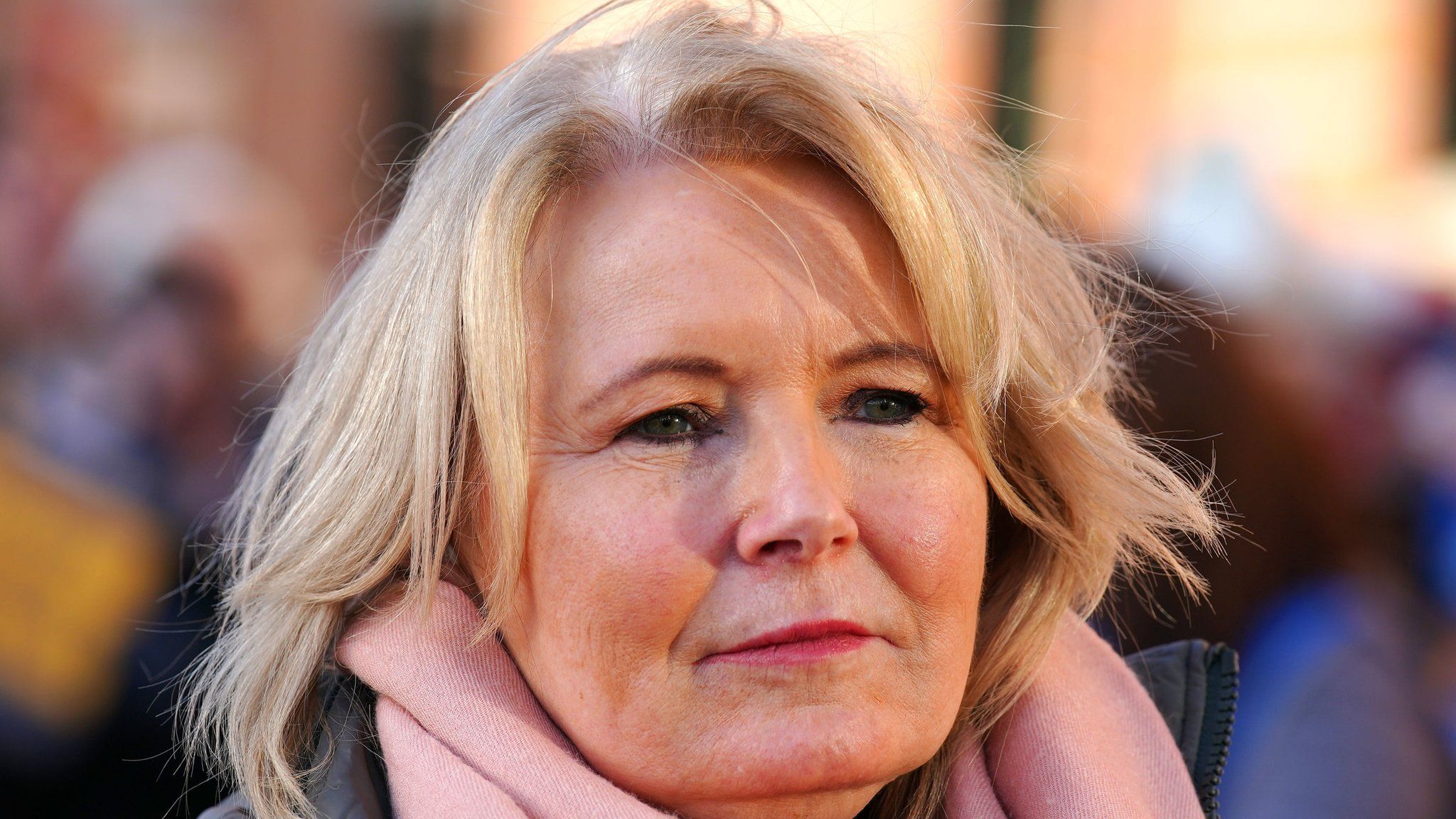
-
-
Are pay review bodies completely independent?
-
29 December 2022
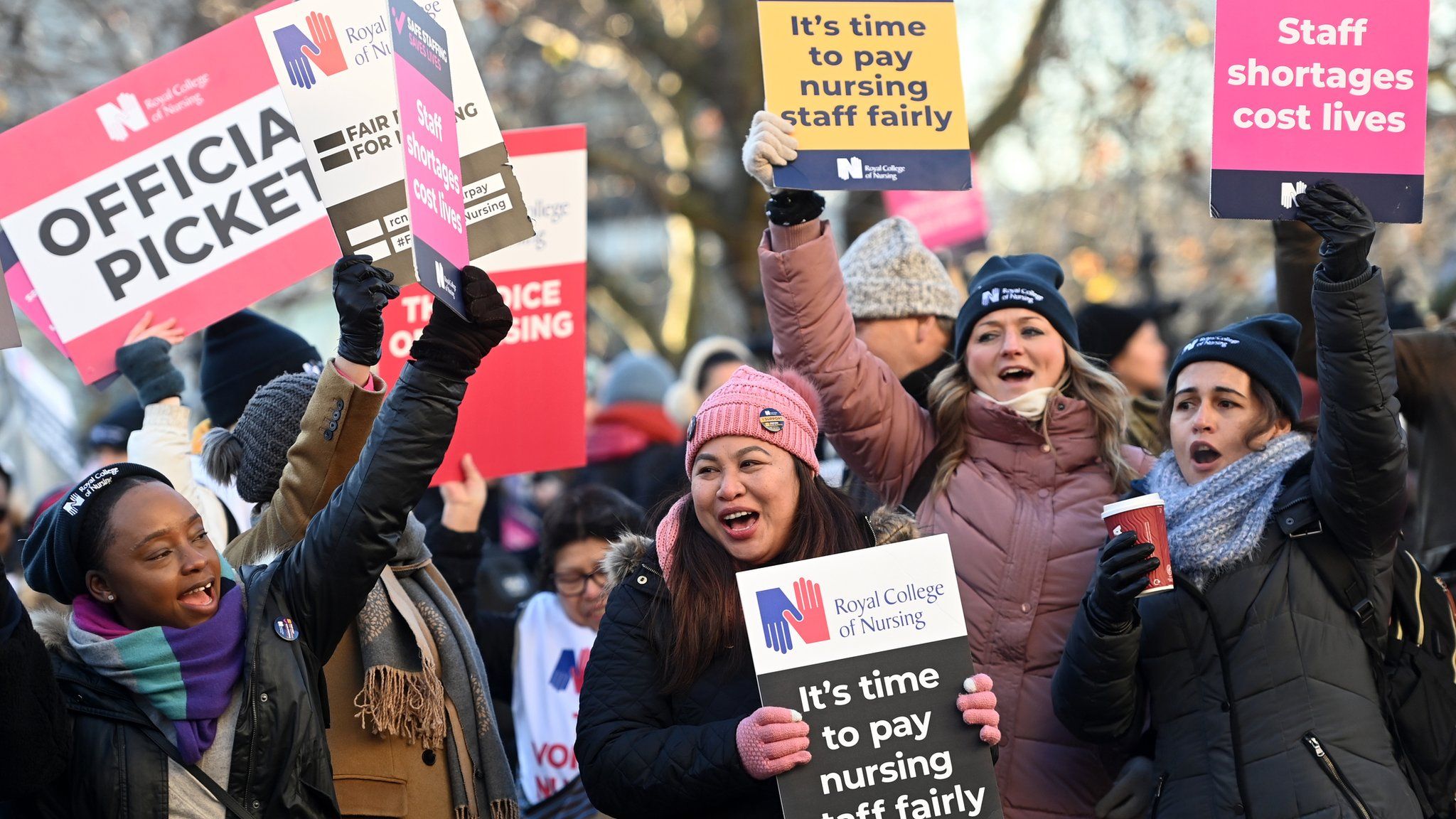
-
-
Fresh nurse strike dates announced in England
-
23 December 2022
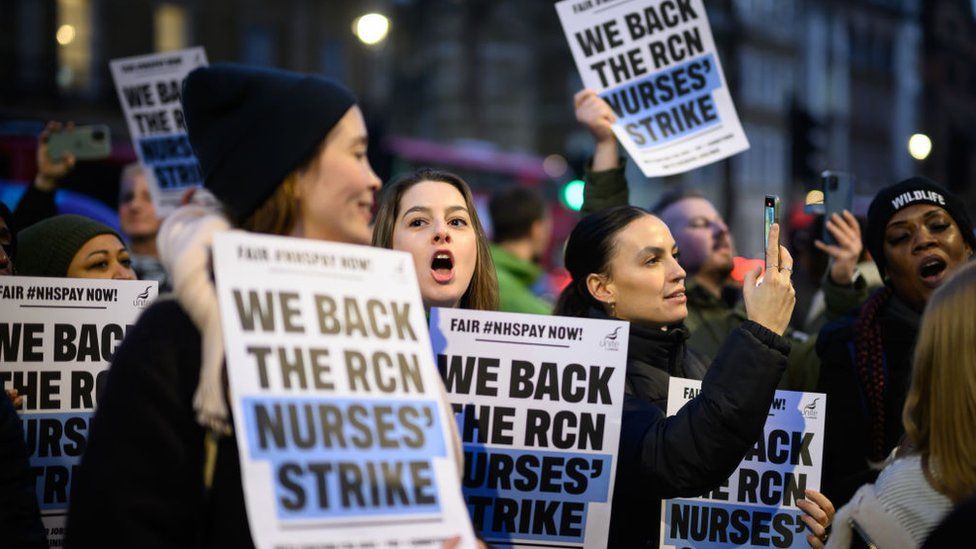
-
Published at Mon, 06 Feb 2023 07:51:47 +0000
